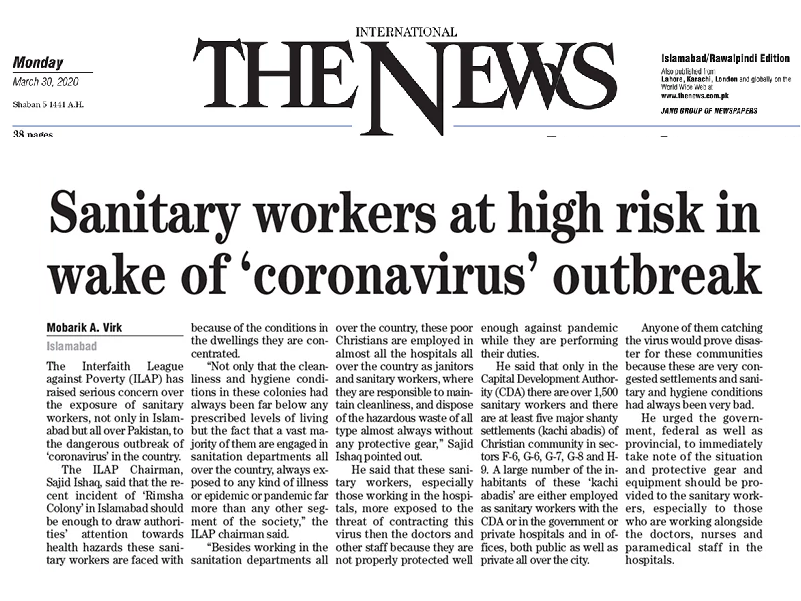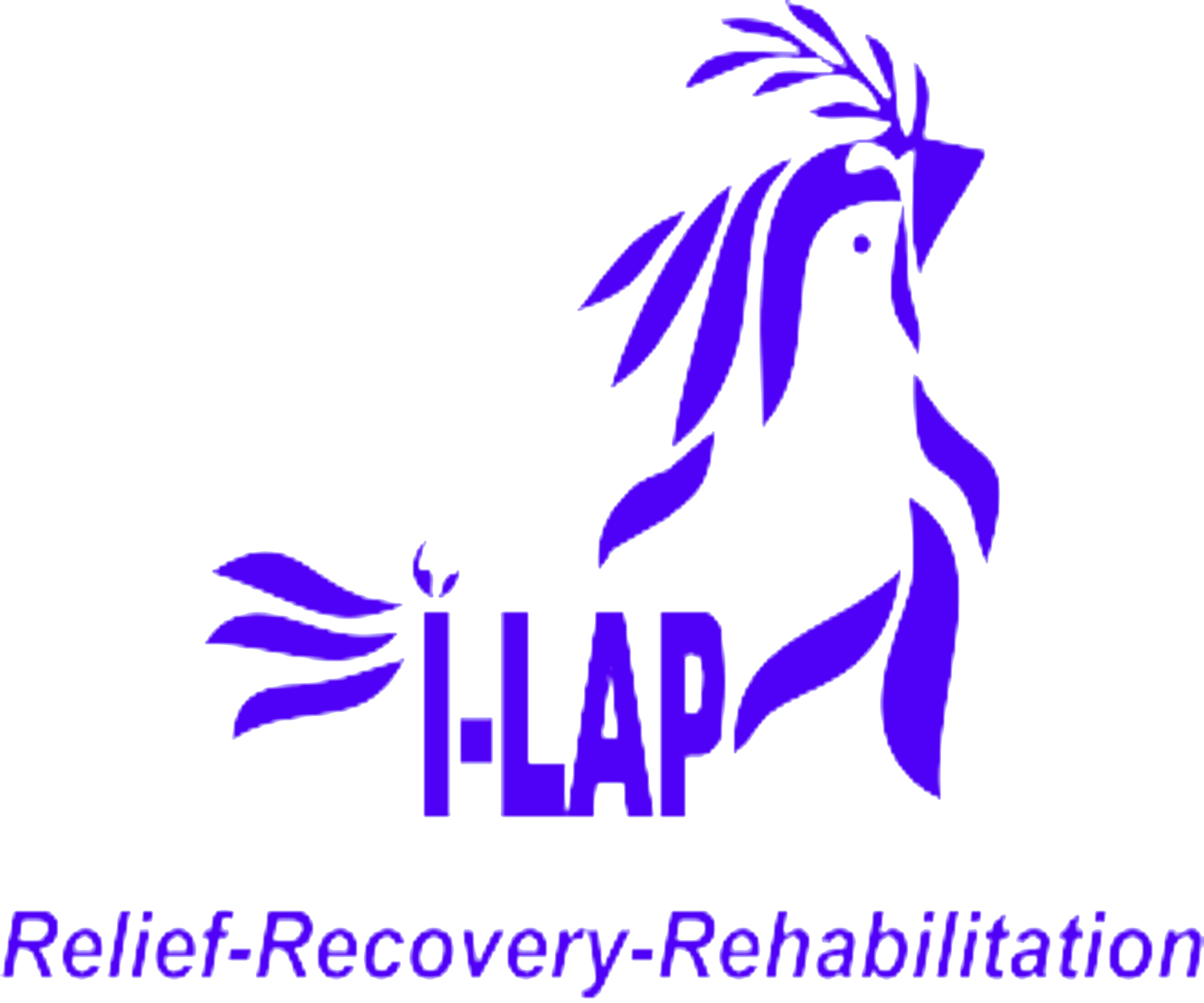The ILAP Chairman, Sajid Ishaq, said that the recent incident of ‘Rimsha Colony’ in Islamabad should be enough to draw authorities’ attention towards health hazards these sanitary workers are faced with because of the conditions in the dwellings they are concentrated.
“Not only that the cleanliness and hygiene conditions in these colonies had always been far below any prescribed levels of living but the fact that a vast majority of them are engaged in sanitation departments all over the country, always exposed to any kind of illness or epidemic or pandemic far more than any other segment of the society,” the ILAP chairman said.
“Besides working in the sanitation departments all over the country, these poor Christians are employed in almost all the hospitals all over the country as janitors and sanitary workers, where they are responsible to maintain cleanliness, and dispose of the hazardous waste of all type almost always without any protective gear,” Sajid Ishaq pointed out.
He said that these sanitary workers, especially those working in the hospitals, more exposed to the threat of contracting this virus then the doctors and other staff because they are not properly protected well enough against pandemic while they are performing their duties.
He said that only in the Capital Development Authority (CDA) there are over 1,500 sanitary workers and there are at least five major shanty settlements (kachi abadis) of Christian community in sectors F-6, G-6, G-7, G-8 and H-9. A large number of the inhabitants of these ‘kachi abadis’ are either employed as sanitary workers with the CDA or in the government or private hospitals and in offices, both public as well as private all over the city.
Anyone of them catching the virus would prove disaster for these communities because these are very congested settlements and sanitary and hygiene conditions had always been very bad.
He urged the government, federal as well as provincial, to immediately take note of the situation and protective gear and equipment should be provided to the sanitary workers, especially to those who are working alongside the doctors, nurses and paramedical staff in the hospitals.

